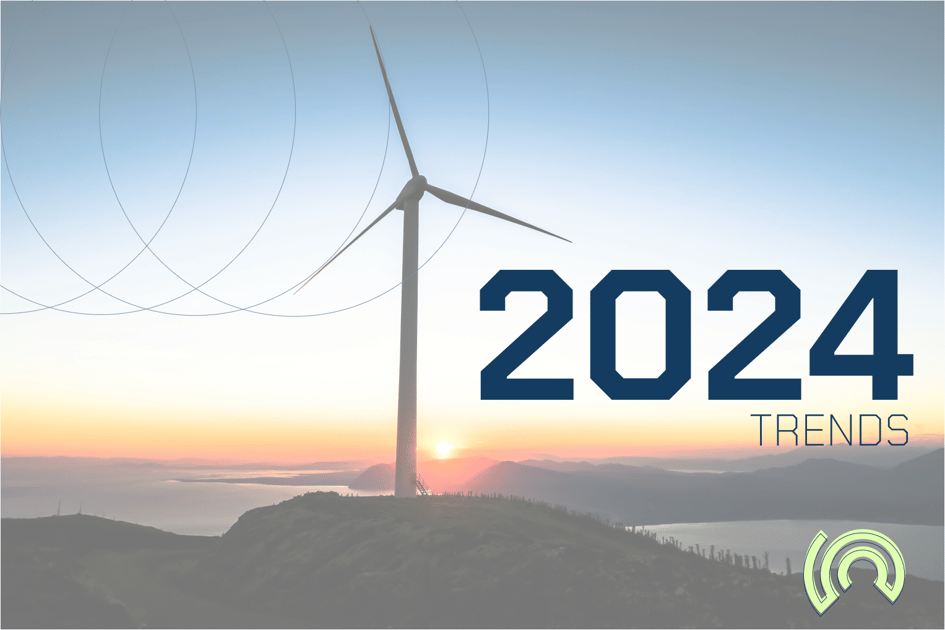Green transition and climate tech trends for the year 2024
January 18, 2024 •Greencode

Welcome to the Year 2024 - let’s make it a better year yet to come!
It is not news to anybody in the startup field that the VC-market in general has been challenging. While climate-tech has been a sweetheart of the VC market, even it is not immune to the winterish market conditions.
According to sifted (2023), the climate tech funding for Europe has dropped 11% in 2023. The number of deals has also fallen, from 1,600 in both 2021 and 2022 in Europe, to 1,400 this year.
Although there is a dip in climate tech funding, there has been an even much bigger dip in the general tech investment scene (-40% year-on-year respectively). Hence, the overall percentage of climate tech funding vis-a-vis total investments has been in fact growing momentum.
In order to drive impact, our sector focus on energy, mobility, built environment and industries needs even more investments in the next years to come. According to sifted (2023), only 14% of funding in 2023 went to industry solutions, up from 8% in 2022, but still a gap given the sector’s share of emissions. Therefore, it has never been a better time to be a green transition VC investor: the deal flow is fantastic, there is less money being deployed in startups, and more and more transformative founders set their mission to build purpose-first startups.
When looking towards the year 2024, there are certain trends we monitor in the market.
1 - Renewable energy, volatility and balancing:
Swift transition to renewable energy sources is an imperative victory. Crucial to managing the intermittency of renewable sources and maintaining grid stability are advanced grid management systems. Software, harnessing AI, assumes a pivotal role in data analytics and predictive modeling, fostering efficient grid management and facilitating a rapid and dynamic shift to renewable energy sources.
2 - E-mobility, AR/VR, fleet optimization:
Electric vehicle adoption is dependent on fleet optimization, optimizing charging schedules, and minimizing downtime. Innovation in AR and VR is driving adoption and developing more and more sophisticated business models.
3 - Artificial intelligence for green transition:
AI plays a vital role in optimizing the allocation of resources, reducing environmental impacts, and improving energy efficiency during the shift to a green economy. The use of digital twins can expedite and cost-effectively facilitate the transition to green practices by optimizing the processes.
4 - Blending of climate tech and fintech:
The convergence of climate technology and financial technology is crucial for aligning financial objectives with sustainability goals. There is a significant demand, especially in the realm of reporting tools, to address this requirement. Additionally, blockchain technology is being employed to improve transparency and traceability in green investments.
5 - Optimization of industrial green transition:
Industrial optimization, which emphasizes the reduction of carbon footprint through technology upgrades, improvements in process efficiency, adherence to circular economy principles, and the implementation of sustainable practices is crucial for the transition to green practices. Software solutions play a significant role in making industrial optimization and the green transformation efficient and swift.
6 - Circular economy and marketplaces:
The rapid transition to a circular economy, with solutions aimed at reducing waste through the promotion of recycling, reusing, and refurbishing materials, is imperative for the green transition. Digital marketplaces play a crucial role in connecting businesses and consumers, streamlining the exchange of recycled or upcycled products, and fostering transparency in the circular economy supply chain.
7 - Biodiversity loss and accounting:
The increasing concern about biodiversity loss has prompted the development of tools and methodologies for biodiversity accounting. These tools quantify and monitor the impact of human activities on ecosystems, integrating biodiversity considerations into corporate decision-making processes and promoting sustainable practices.
Reflecting towards the new year, in the urgent pursuit of a sustainable future, the transition to green energy, industry, mobility, housing, and construction through software solutions with immediate impact is ever so crucial. Startups, leveraging their innovative approaches, play a pivotal role in propelling this transformative change. Greencode is dedicated to supporting startups that exhibit the greatest potential to drive green change and make a positive impact.
Are you a founder in a digital-first green transition startup in Europe? We’d love to hear from you! Please submit your deck to us for consideration at hello@greencode.vc!

.png)